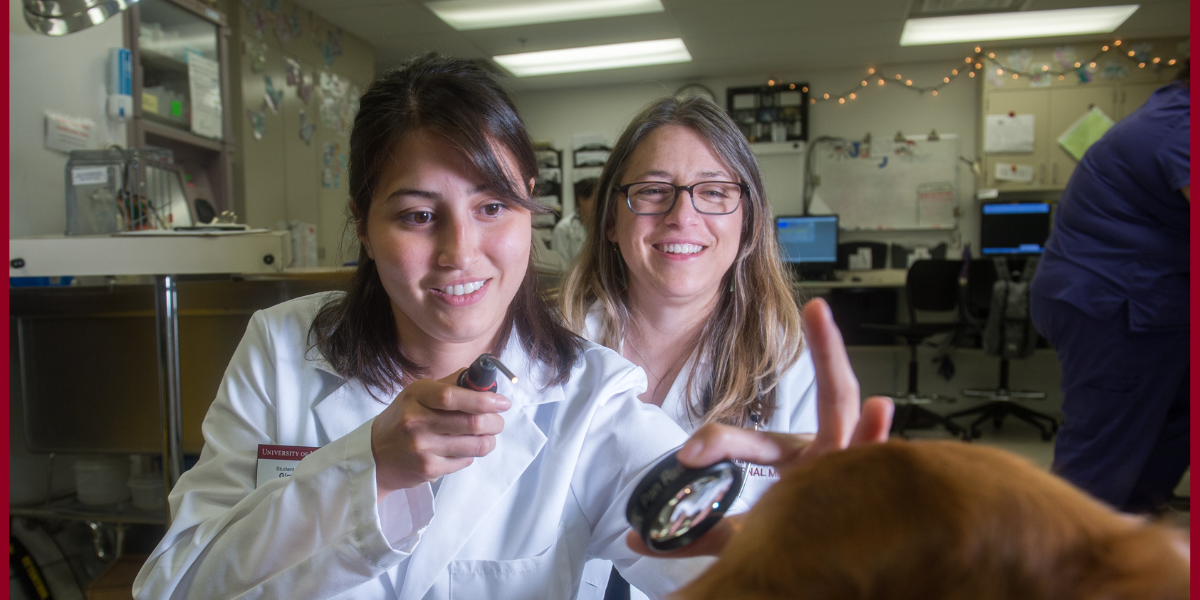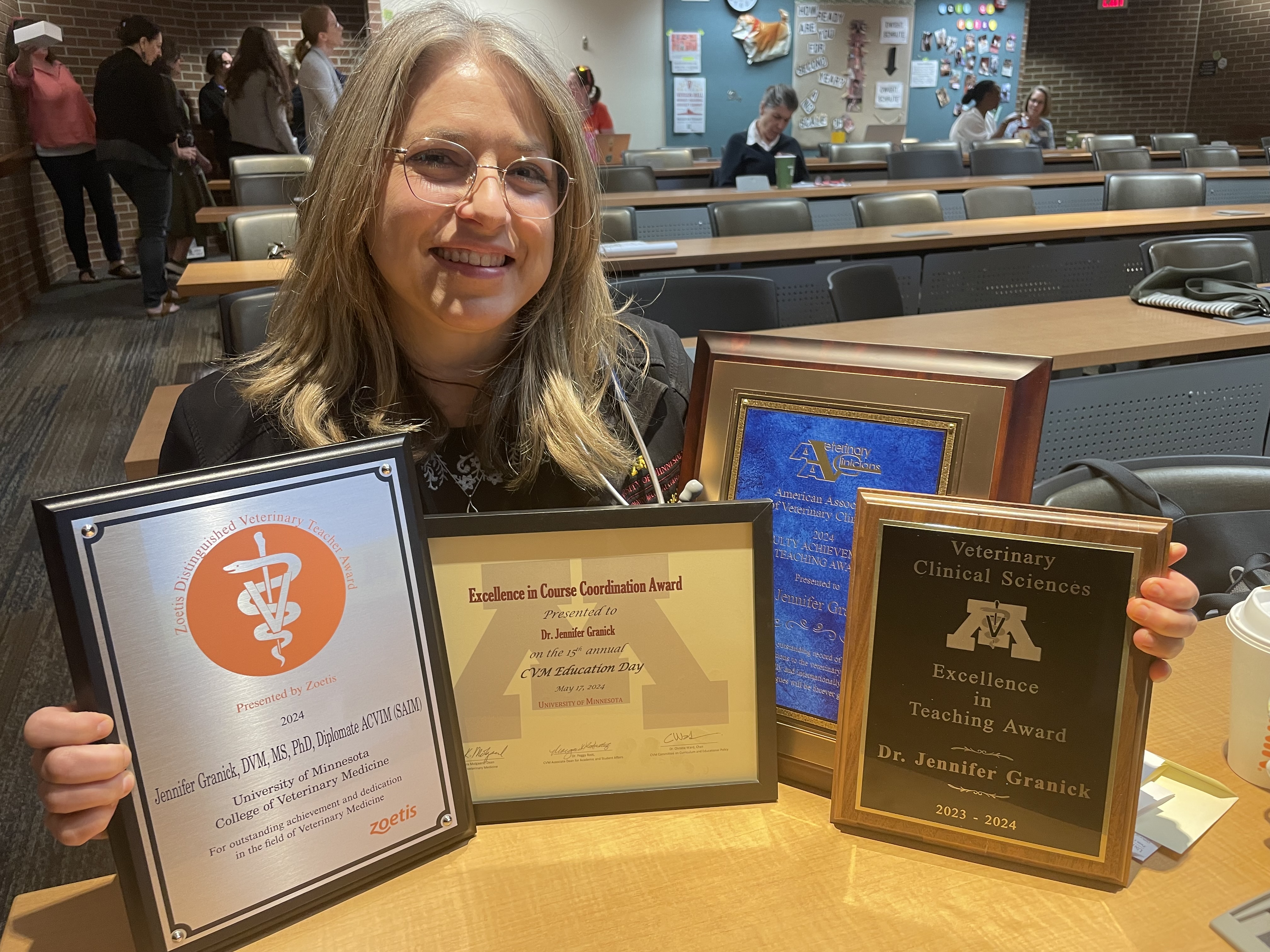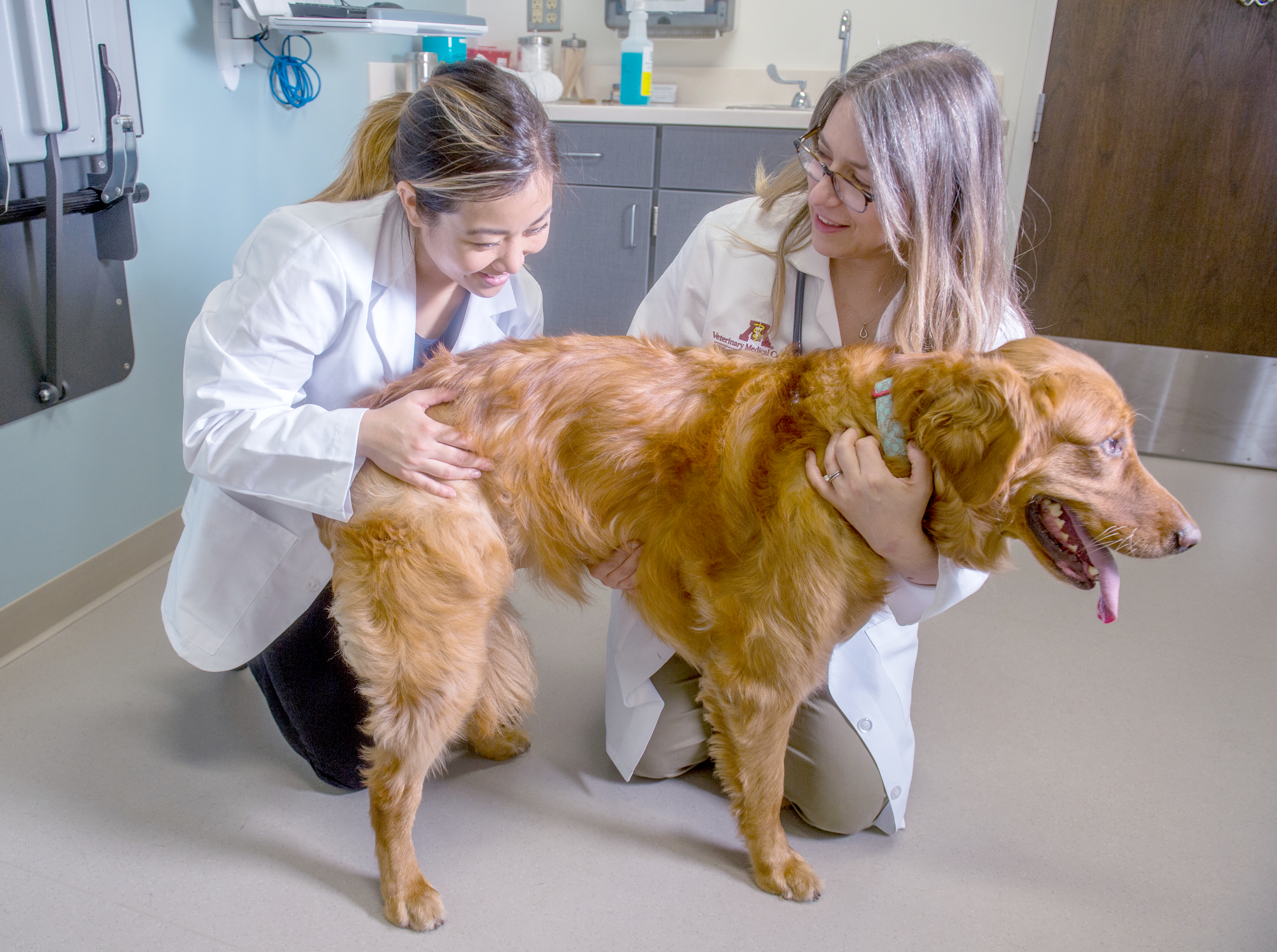Inspiring and embracing curiosity
Dr. Jennifer Granick combines discovery, fun, and compassion to craft an effective—and award-winning—teaching approach for DVM courses

Dr. Jennifer Granick combines discovery, fun, and compassion to craft an effective—and award-winning—teaching approach for DVM courses
Dr. Jennifer Granick (right) guides then-DVM student Gigi Gutierrez through a physical exam on a canine patient.
When she’s instructing students in classrooms and on clinical rotations at the College of Veterinary Medicine (CVM), Dr. Jennifer Granick often finds herself learning from those she teaches.
These moments exemplify a very important lesson she wants students to take away from her courses and their overall education: Being a veterinarian means being a lifelong learner.
“When I first started teaching, I think I had the impression that as a faculty member or as an instructor, you needed to know everything,” Granick says. “But if you don't let go of that quickly, you'll be flustered because students are so inquisitive, and they ask questions that you often don't know the answer to. And you have to be really comfortable by saying, ‘I don't know, that's a great question. We should figure it out.’”

Taking this approach in her teaching has earned Granick the appreciation of students, evidenced most recently by the accolades she received at the 2024 CVM Education Day award ceremony. There, Granick was the recipient of the American Association of Veterinary Clinics Faculty Achievement in Teaching Award, an Excellence in Course Coordination award, the Excellence in Teaching Award for the Department of Veterinary Clinical Sciences, and the Zoetis Distinguished Teaching Award—the most prestigious faculty teaching award bestowed at CVM.
The award nominations submitted for her by students tell the tale of a teacher who is engaging and fun while showing compassion for learners and enthusiasm for the material she covers.
“Dr. Granick has a contagious personality in the classroom that makes me excited to learn. She has a great sense of humor and strives to make us laugh and connect with the content. Loved her class!” reads one nomination from a student.
Another wrote, “Dr. Granick has consistently been an amazing instructor. I truly feel her passion for the material she presents, as well as her genuine caring for students. The way she teaches and walks through cases is so helpful for not only understanding but also retaining the material.”

It’s an impact Granick’s been making over the past 11 years she’s worked at CVM. While completing her residency at the College from 2005 to 2008, she had the opportunity to teach veterinary students—planting a seed for a future career path. After earning her PhD in late 2012, she joined CVM as a faculty member in 2013 and is currently an associate professor of internal medicine in the Department of Clinical Sciences. She also serves as the department’s vice chair of education.
As her career has progressed, Granick hasn’t forgotten what it’s like to be a veterinary student. She reflects on this experience as she plans courses and lectures. Feedback from students also plays a key role in shaping her instruction.
“You have to be constantly willing to adapt and change,” she says. “We ask students to have a growth mindset—to be comfortable with learning from mistakes and to sort of flex that resiliency muscle. I think as an instructor, you have to do the same thing.”
Preparing students to start their careers as veterinarians involves equipping them with the knowledge and skills to be effective on day one. One more element that Granick prioritizes is encouraging students to think critically. Knowledge and skills are a foundation for their careers, but critical thinking allows them to build on that baseline and develop solutions to problems they’ll encounter daily.

Embracing the inquisitive nature of veterinary students and the wide range of life experiences they bring to classroom discussions is a highlight of teaching for Granick. She encourages those who may be pursuing or starting a career as an instructor to wrap these elements into their own teaching philosophy.
“I teach basically the same information every year, but it feels fresh to me every year because of the perspectives students bring to it,” she says. “I think being willing to engage with them and be excited about their curiosity and let their curiosity fuel your own is a characteristic of a good teacher.”
While the accolades Granick has earned this year bear her name, she notes that the support she has received at the College throughout her time as a resident and instructor has made them possible. She credits colleagues such as Drs. Jody Lulich, Erin Malone, Lindsay Merkel, and Margaret Root for serving as mentors and role models who have shaped and continue to inform her perspective on teaching.
“I don't think I would be getting a Zoetis award without all of those people,” she says. “I look at my role models, and I think about how maybe someday I will be that person for somebody else. I think that's pretty humbling.”